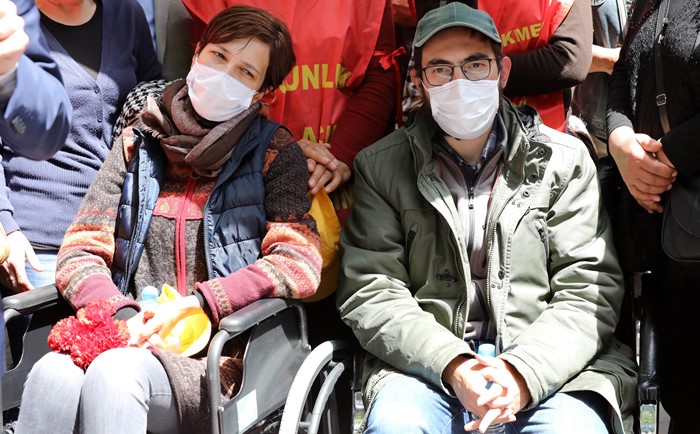Civil society organizations (CSOs) including human rights defenders, lawyers and health organizations have protested a rejection by the European Court of Human Rights’s (ECtHR) of Turkish hunger striker educators Nuriye Gülmen and Semih Özakça’s request to order the Turkish government to release them on grounds of health, the Cumhuriyet daily reported on Thursday.
The court ruled that the detention of Gülmen and Özakça “did not pose a real and imminent risk of irreparable harm to the life or limb of the applicants” and suggested applying to national courts.
The Turkish Medical Association (TTB), Ankara Chamber of Doctors (ATO), Human Rights Foundation of Turkey (TİHV), Human Rights Association (İHD) and Progressive Lawyers Association (ÇHD) said the ECtHR decision was “scandalous” considering statements filed by 24 specialists who emphasized that the lives of the jailed teachers were at risk.
Calling on the OHAL Commission (a state of emergency commission established to investigate applications directly related to the loss of state jobs through the issuance of government decrees) to give an urgent response concerning the decision on Gülmen and Özakça, who are the 148th day of a hunger strike in protest of dismissal from their jobs under state of emergency decrees, the organizations asked “While doctors say their lives are threatened, how could the judge giving the decision say that there is no risk to their lives?” in a press statement.
While the court asked the jailed educators to end their hunger strike, it also told Ankara to give permission to doctors to examine Gülmen and Özakça. Doctors had said in June that the health of the teachers was becoming more critical.
The educators, who were on the 76th day of a hunger strike when they were arrested on terror charges on May 23 in Ankara, said their strike aims to draw attention to the situation of more than 150,000 dismissed state employees.
The Turkish government started a crackdown on opposition in the wake of a botched coup attempt on July 15, 2016 that killed 249 people and wounded more than a thousand others.
Immediately after the putsch the Justice and Development Party (AKP) government along with President Tayyip Erdoğan pinned the blame on the Gülen movement, arresting more than 50,000 and dismissing or suspending around 150,000 judges, teachers, police and civil servants since July 15.
While Fethullah Gülen denies involvement in the failed putsch, European critics and human rights groups say Erdoğan is using the coup attempt as an excuse to oppress his opponents.
